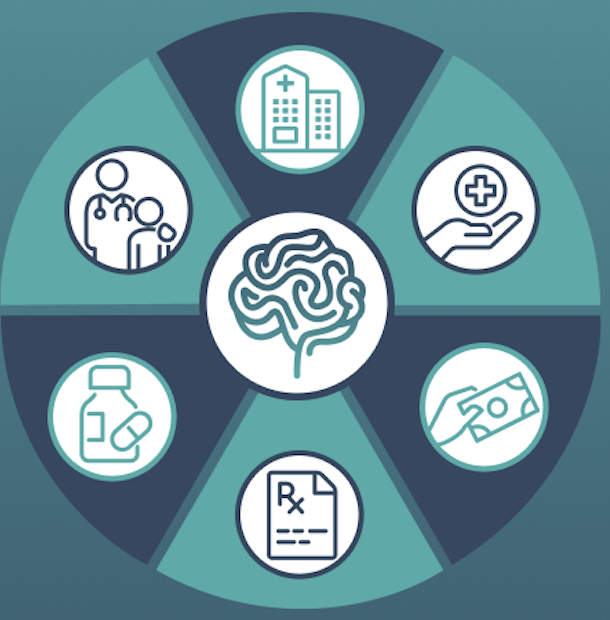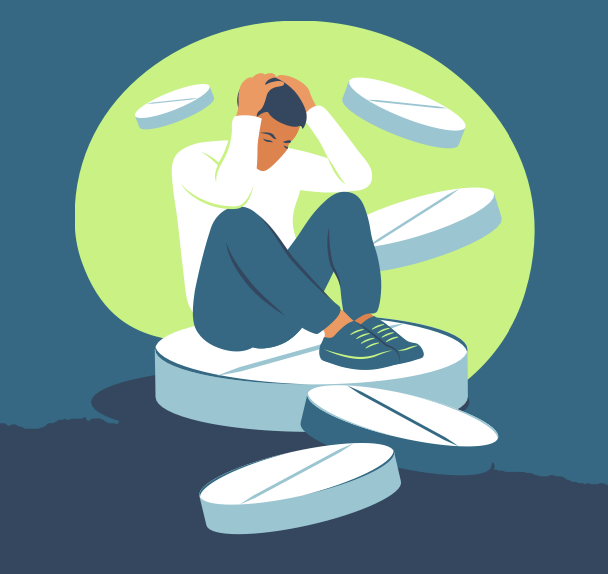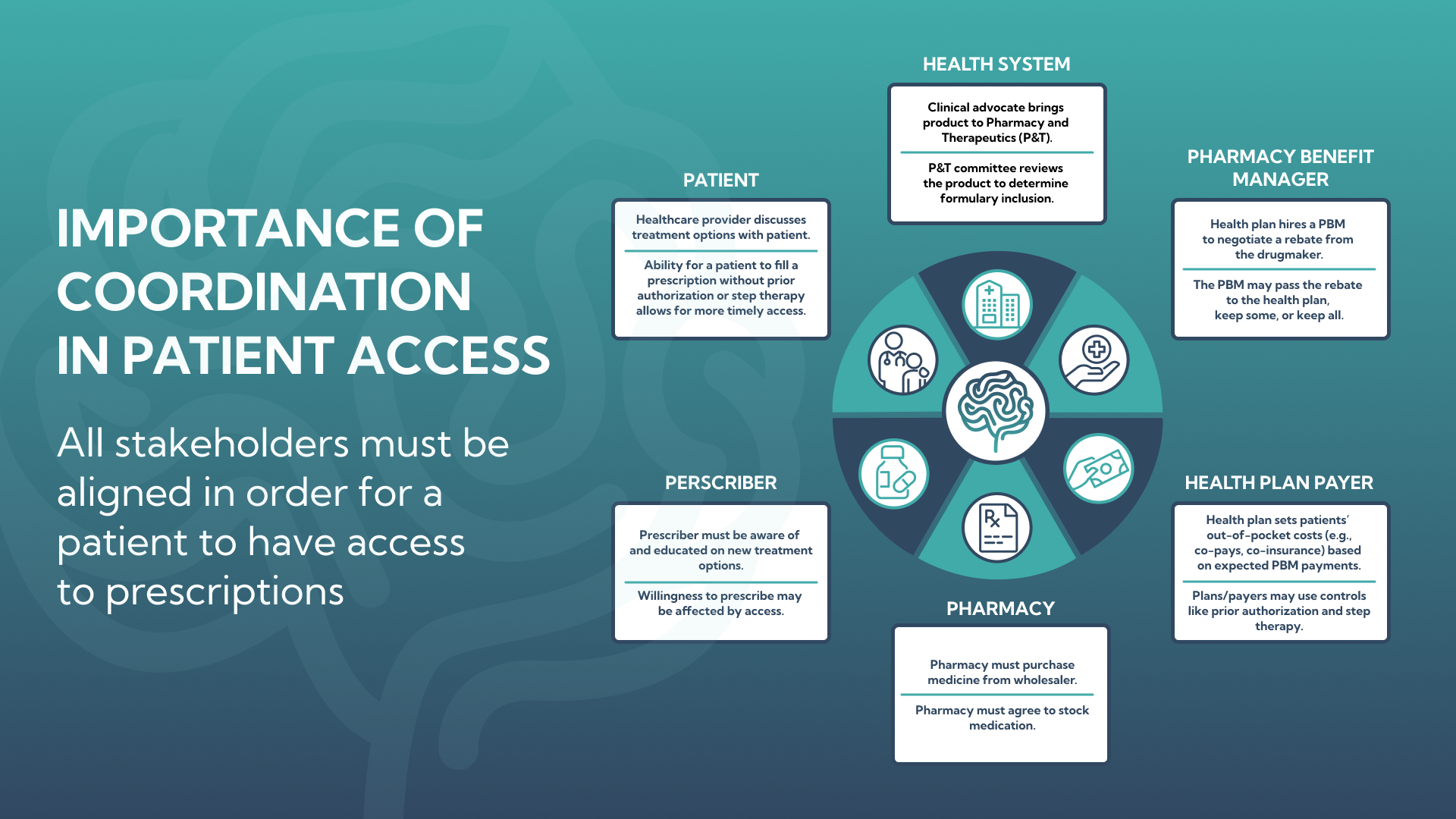The Families, Addiction & Mental Health Network (FAM) supports federal and state policies and initiatives that support caregivers, families and individuals as they navigate complex mental health, addiction and pain management treatment challenges.
Learn more about our policy priorities below.
Supporting Caregivers
Over 65 million Americans provide care for a chronically ill, disabled, or elderly family member over the course of any given year.4 Among these caregivers, 66% are women, and nearly 40% have children or grandchildren living with them,5 placing additional demands on their time and resources. The typical family caregiver devotes an average of 20 hours per week caring for their loved one.6 These “free” caregiving services are approximated to be $375 billion annually, underscoring the foundational role caregivers play in the nation’s long-term care system.7
Caregiving often comes with significant challenges. For instance, the demands of caregiving often result in significant stress, with caregivers experiencing higher rates of depression and poorer health compared to those who are not caregivers. These challenges highlight the need for greater support and resources to go toward caregivers nationwide.
Public Policy to Support Caregivers
FAM advocates on dozens of public policy issues, including legislation and regulations, that affect family caregivers, at both the federal and state levels. Below are some highlights of FAM’s policy positions.
In-Home Care Services
As most caregivers know, they may need the additional help of in-home care services for their loved ones. FAM believes that policies should be set that allow caregivers to use assets such as insurance policies and Health Service Accounts to cover the costs of in-home care. FAM supports requirements for home health agencies to:
- Ensure that patients and their caregiver(s) receive written information about upcoming visits, medication instructions, treatments administered, and the name and contact information for home health agency clinical managers
- Provide each patient and their caregiver(s) with ongoing education and training, as appropriate, regarding the care and services identified in the plan of care
- Coordinate all services provided by the physicians, nurses and therapists involved in the patient’s care.
Tax Policies That Help Caregivers
Caregivers spend much of their time and income caring for loved ones. FAM believes that a tax credit should be put in place to recognize this fact. As of right now, the income tax system recognizes the need to offset expenses for people with dependents. We believe that this should extend to caregivers as well.
Medicaid
If a loved one is covered by Medicaid, there is a program called Consumer Directed Personal Assistance Program (CDPAP) that gives an allowance to pay a family member as the caregiver. FAM believes that we should protect this program so caregivers can continue to receive financial support. The support is needed to provide care for their loved ones. FAM also strongly advocates for increased funding for Home and Community-Based Services, which are services that allow people to stay at home longer before they need a nursing home.
Access to Prescription Drugs
Prescription drugs can be extremely costly, especially for patients who have a high-deductible health insurance plan. FAM believes that policies should be passed that push health insurers to pass on rebates to help lower the cost of prescription drugs for patients and caregivers. FAM also wants to ensure that caregivers can access medical information and patient records, including prescription drug information, so they can better care for a loved one.
Pain Management Innovations
Every day, 130 Americans die from opioid-related drug overdoses.8 This ongoing public health emergency disproportionately impacts individuals with a family history of addiction and historically marginalized communities.
Furthermore, an estimated 3% to 19% of people who take prescription pain medications develop an opioid use disorder (OUD),9 underscoring the dangers of prescribing opioids. As OUD and overdoses show no signs of slowing, Americans are increasingly concerned about the future of pain management treatment options in our country.
Resources

December 5, 2024
Empowering Families in Health Policy Decision-Making

Importance of Coordination in Patient Access

The Opioid Epidemic and Need for Parity in Pain Treatment
4. Statistics on Family Caregivers and Family Caregiving. Caregiver Action Network. https://www.caregiveraction.org/caregiver-statistics/
5. Caregiving in the United States; National Alliance for Caregiving in collaboration with AARP. November 2009
6. Horovitz, B. New AARP Report Finds Family Caregivers Provide $600 Billion in Unpaid Care Across the U.S.AARP. https://www.aarp.org/caregiving/financial-legal/info-2023/unpaid-caregivers-provide-billions-in-care.html
7. Evercare Survey of the Economic Downturn and Its Impact on Family Caregiving; National Alliance for Caregiving and Evercare. March 2009
8. Opioid Crisis. Health Resources and Services Administration. https://www.hrsa.gov/opioids
9. Opioid Use Disorder. American Psychiatric Association. https://www.psychiatry.org/patients-families/opioid-use-disorder.
Some of the content was originally created by Caregiver Action Network at www.caregiveraction.org/legislation-and-public-policy/ and is being republished in partnership with FAM.
![echo esc_url($site_logo['title']);](https://www.fam-network.org/wp-content/uploads/2024/12/FAM-logo-reversed.png)
